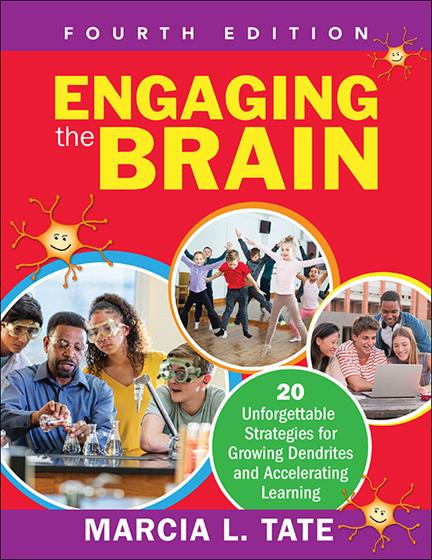
Hands-on, Practical Guidance for Educators
From math,
literacy, equity, multilingual learners, and SEL, to assessment, school counseling,
and education leadership, our books are research-based and authored by experts
on topics most relevant to what educators are facing today.
Engaging the Brain
Create unforgettable learning experiences for your students
What can you do when students would rather socialize than pay attention to your lesson? When students appear to lack motivation, how do teachers ensure that learning sticks? How can you best respond to learning loss caused by the pandemic?
In this new edition of Marcia Tate’s wildly bestselling Worksheets Don't Grow Dendrites, 20 field-tested, brain-compatible instructional strategies designed to maximize memory are supported by new classroom applications and research. In each chapter devoted to an individual strategy, you'll discover:
- The latest research on how the brain benefits when the strategy is used
- How the strategy engages all students and addresses common behavior problems
- Sample classroom activities for various grade levels that teachers can implement immediately
- Action plans for incorporating each strategy to accelerate learning
When students actively engage in learning, they stand a much better chance of retaining what we want them to know. As students face setbacks and learning gaps, it's imperative that we quickly bridge these divides by teaching them in the way their brains learn best.
- Grade Level: PreK-12
- ISBN: 9781071939789
- Published By: Corwin
- Year: 2024
- Page Count: 272
- Publication date: September 09, 2024
Review Copies
Review copies may be requested by individuals planning to purchase 10 or more copies for a team or considering a book for adoption in a higher ed course. To request a review copy, contact sales@corwin.com.


